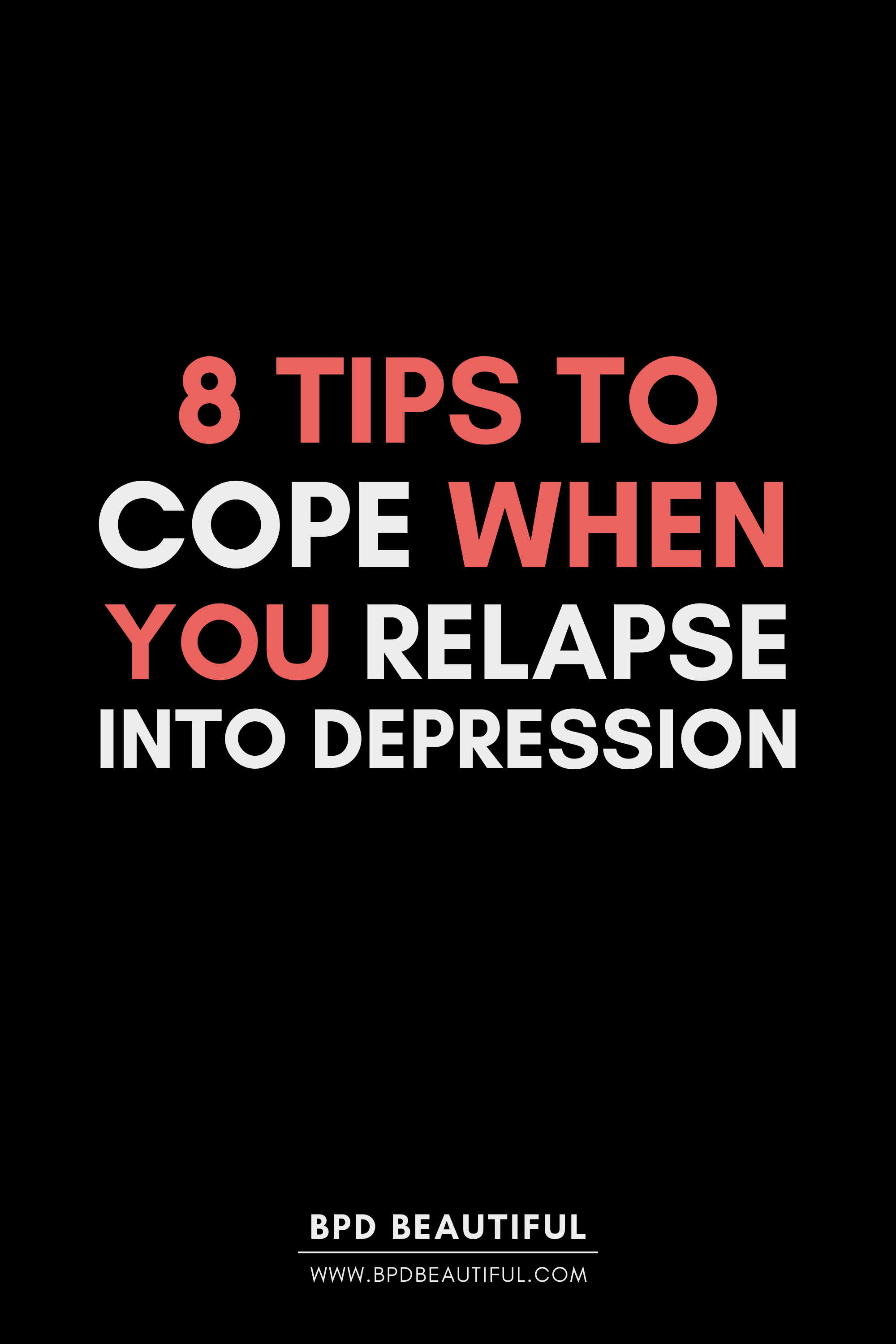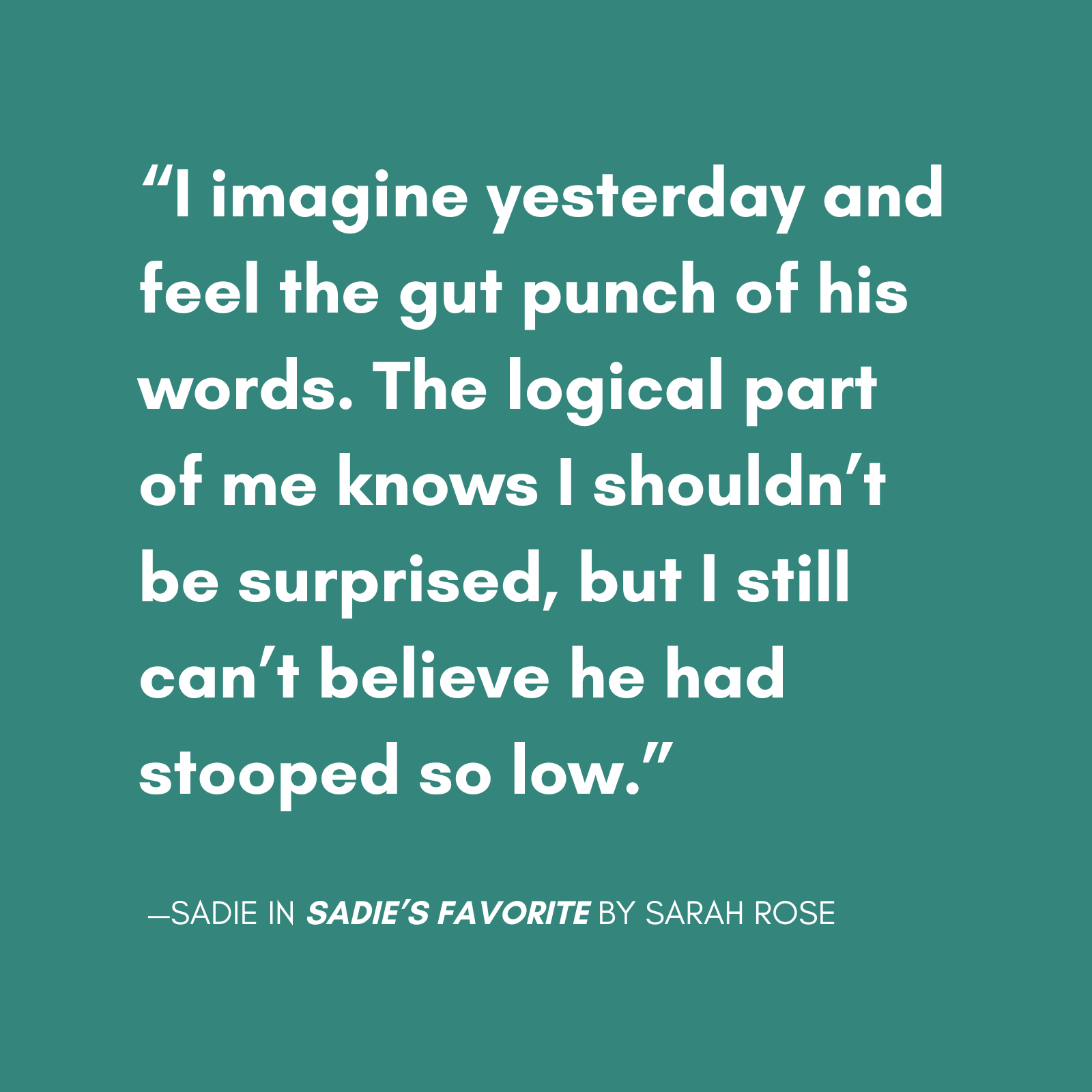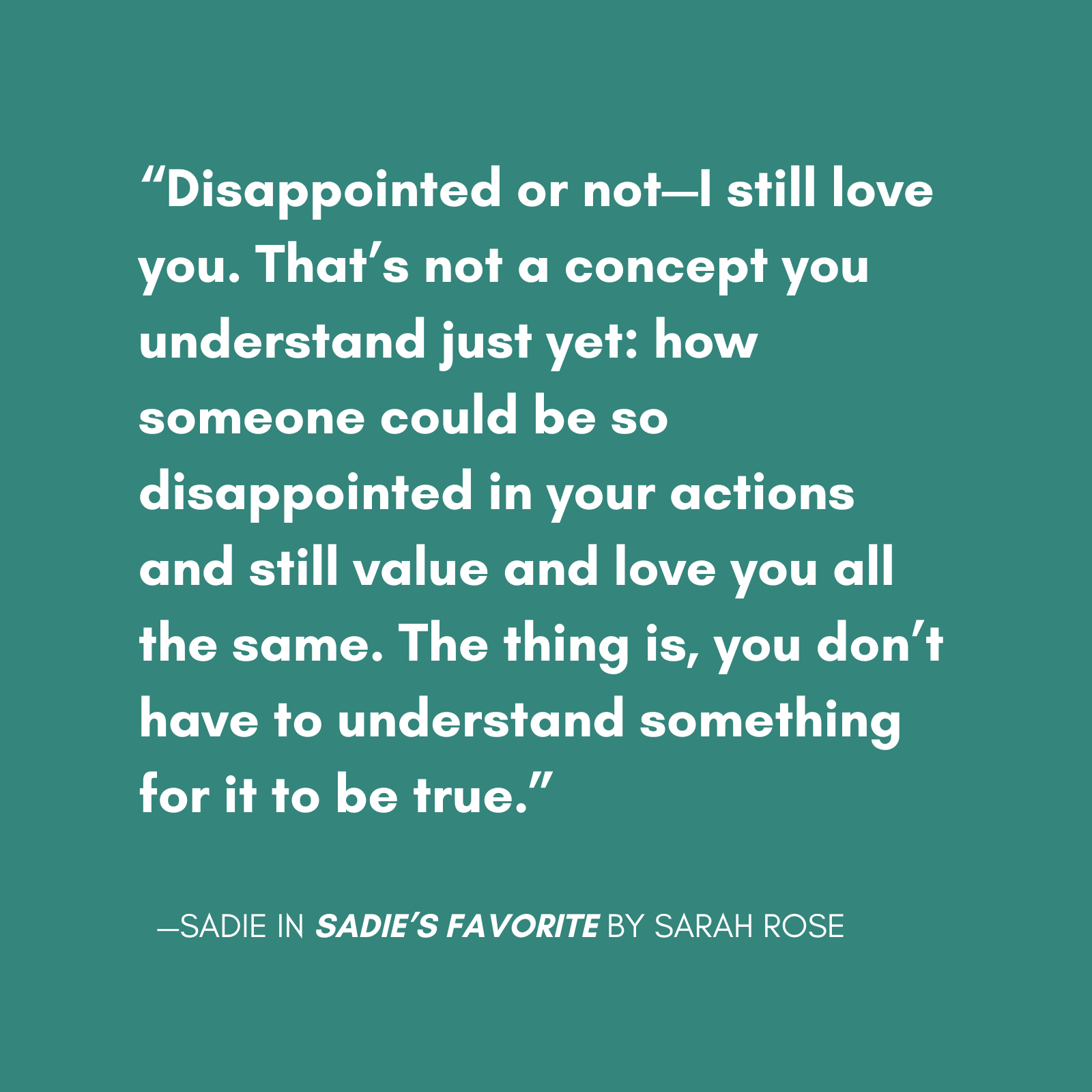Note: This post was written in 2018 – before BPD Beautiful was even launched.
Depression and Relapse
Here are 8 tips to help you cope with a depression relapse and get back on track. Living with depression? You’re not alone.
Relapsing into depression can start out slowly-you might feel off, then your optimism seems to disappear and everything feels pointless again. The days drag on. Minuscule tasks feel like huge projects that suck the life out of you. You might waste all of your free time laying in bed as you stare at your phone. Or maybe you isolate yourself and stop following through on plans. Whatever you do, the depression you’d worked so hard to get rid of is back. And even though you’ve dealt with depression once before, it seems impossible to help yourself and battle another round.
I’ve been there. More than once. It sucks.
I wrote in an old journal once-during my first relapse, that the relapse felt worse than the initial depression I’d had before treatment. That’s because for me, the recovery and subsequent relapse felt like a tease. For once in my life-I didn’t wake up every day feeling cynical, resentful and hopeless. I didn’t feel like a failure or feel ashamed of myself. I was content with each present moment, I was grateful for myself and I looked forward to my future. And then somehow, it was all gone and I was sucked back into what I can only describe as darkness.
Recovery is a journey, not a destination.
“THIS STORY WILL HELP SO MANY PEOPLE.” -BETA READER
From the creator of BPD Beautiful, Sadie’s Favorite tells the story of a girl lost, a woman recovered and the trauma in between. Coming October 22, 2025.
8 Tips to Overcome Depression Relapse
The following list-along with therapy, is what I do to help myself get back on track in my recovery. It’s always a slow, gradual process and I have to push myself. Even when-especially when, I’d rather wallow in it. Ultimately, defeating depression is worth every struggle and I’ll do it again whenever I have to.
All of these tips might not be right for everyone (except for the first one-that’s essential!) because we’re all different and we all feel depression differently. At the very least, my hope is these tips will spark some motivation in you and help you come up with your own tips that’ll work best for yourself.
Some of these tips may also help if you’re suffering with depression for the first time.
- Talk with your doctor/therapist/psychiatrist/etc.
Don’t wait on this to see if you’ll “get over it” yourself. If you feel shame like I did, don’t let that stop you. Knowing when to ask for help-even if it’s for the second, third or fourth time is a sign of strength. Not weakness. The longer you wait, the worse it could get. Keeping your feelings bottled up will only make you feel more isolated, more hopeless and more depressed.
- Reach out to people you trust.
If you have no one to go to, join a support group or an online community. At the very least, start a journal or a personal blog. Whatever you feel most comfortable with, do. Just don’t keep what you’re feeling or thinking in.
- Write a list of 3–5 small, realistic short term goals.
Make these goals as reachable as possible and adjust them to match the stage of depression you’re in. For example, don’t write down a full blown meal plan if you’ve been struggling to leave the house and one of your long term goals is to lose weight. Nurture yourself and take it slow so you don’t overwhelm yourself with unrealistic expectations. Start small. For example, aim to eat one serving of fruit a day for just one week. Whatever your goals are once you achieve one, move down the list to the next one. Go slow, but don’t give up. Baby steps. It’s a process, not a race.

- Celebrate all of your victories.
Every time you achieve one of the goals you’ve set, congratulate and/or reward yourself. Don’t downplay your achievements and wallow in a negative mindset. Depression is hard. Recovering is even harder. Give yourself credit.
- Take it day by day.
Don’t think about the future, even two weeks from now. Thinking of the bigger picture is great when you’re in a mentally stronger place but during a relapse, it’s better to look at the small accomplishments and get yourself through the present moment. This is the time to nurture your mind and give yourself a break. You wouldn’t attempt to run the day after you sprain your ankle so don’t feel frustrated with yourself if you’re not progressing or achieving your goals in the pace you want. Your mind needs just as much care as a physical injury.
- Distract yourself and stay as busy as you can manage without getting overwhelmed. Do something you typically enjoy, even if you’re not feeling too enthusiastic about it in the moment.
Read a book, go on a walk, visit a friend or invest some time into another old hobby.
- Spark your creativity and get inspired.
Take photos, listen to music, write a song or poem, paint or draw a picture, go on Pinterest and find a hair tutorial or a craft or use it for inspiration to redecorate your room.
- Remember what you’ve done in recovery up until this point and reflect on how far you’ve come.
Think about the times you overcame the smaller struggles in life and how they impacted your recovery overall. Write it all down, make it your story and leave space to write about this next battle once you’ve made it through. You’re stronger than you think. Believe in yourself.
Living with Depression
I’ve relapsed twice. Living with depression is no easy feat. You can read more about my mental health recovery journey here and here. One thing I’ll never do is give up, and neither should you. Life is too short and too valuable. If you’re suffering, please get yourself help. Want more tips? Struggle with BPD on top of depression?
(Read ‘How I Overcome BPD Regressions‘)

As a BetterHelp affiliate, we receive compensation from BetterHelp if you purchase products or services through the links provided.
BPD Resources
BPD Characters: Read the first 6 chapters of Sadie’s Favorite – an upcoming novel by Sarah Rose, creator of BPD Beautiful.
Get 20% off your first month of BetterHelp. Get matched with a licensed therapist within 48 hours. Subscriptions as low as $65/week, billed every 4 weeks. Cancel anytime.
Manage your BPD symptoms with a printable workbook.
See our recommended list of books about BPD.
Start a Discussion
If this post gave you inspiration for dealing with your own depression relapse, please tell us about it in the comments.
Pin this Post
Liked this post? Please help support BPD Beautiful and spread borderline personality disorder awareness by pinning it to Pinterest.





